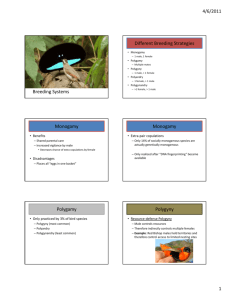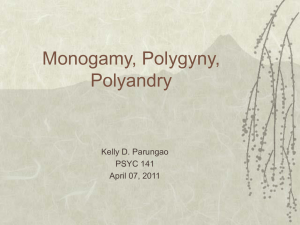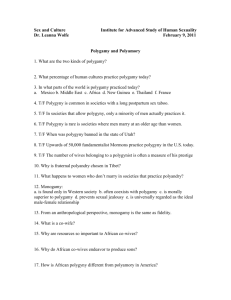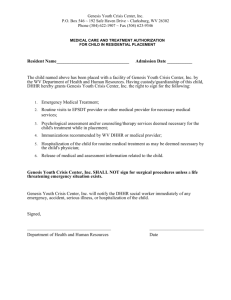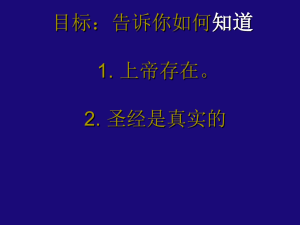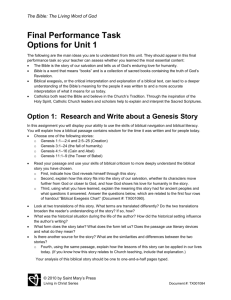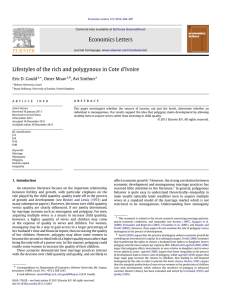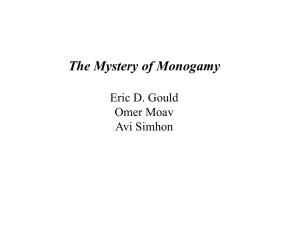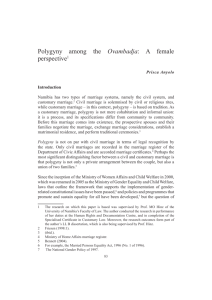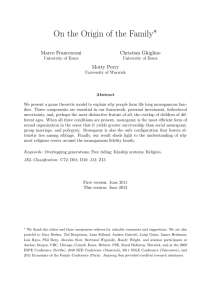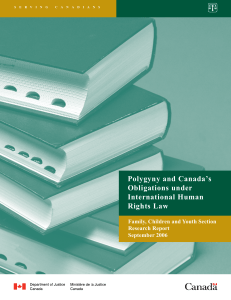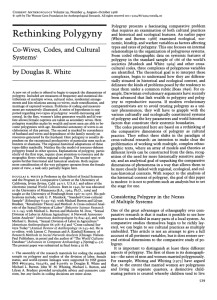The question before us is, What is the Biblical status of polygamy
advertisement
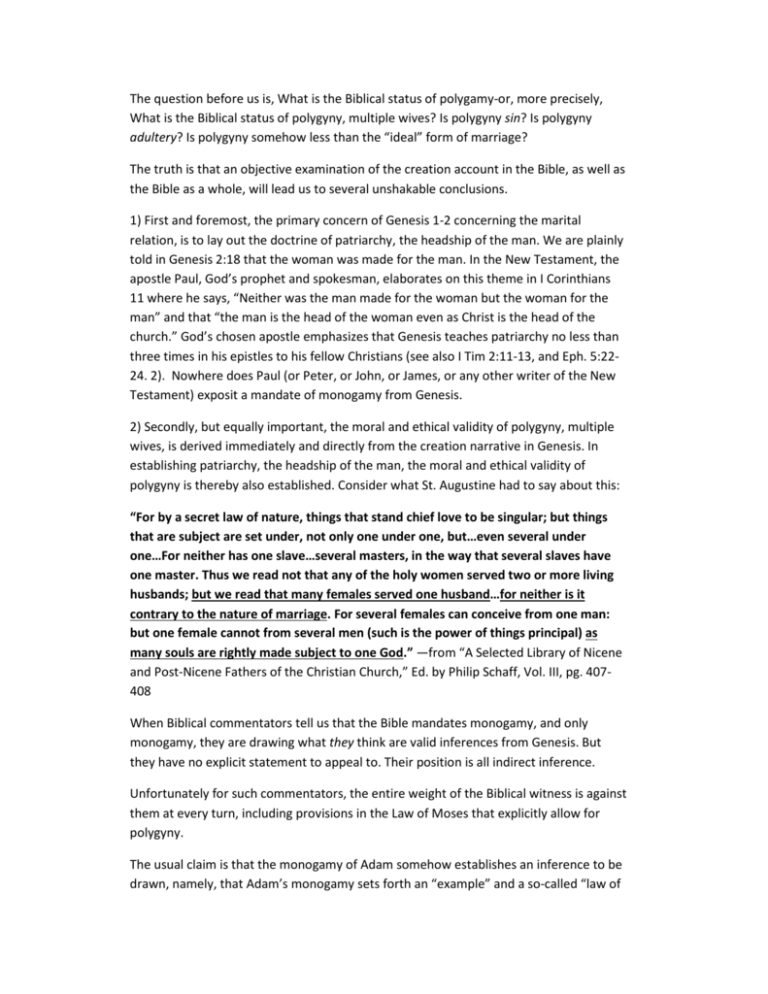
The question before us is, What is the Biblical status of polygamy-or, more precisely, What is the Biblical status of polygyny, multiple wives? Is polygyny sin? Is polygyny adultery? Is polygyny somehow less than the “ideal” form of marriage? The truth is that an objective examination of the creation account in the Bible, as well as the Bible as a whole, will lead us to several unshakable conclusions. 1) First and foremost, the primary concern of Genesis 1-2 concerning the marital relation, is to lay out the doctrine of patriarchy, the headship of the man. We are plainly told in Genesis 2:18 that the woman was made for the man. In the New Testament, the apostle Paul, God’s prophet and spokesman, elaborates on this theme in I Corinthians 11 where he says, “Neither was the man made for the woman but the woman for the man” and that “the man is the head of the woman even as Christ is the head of the church.” God’s chosen apostle emphasizes that Genesis teaches patriarchy no less than three times in his epistles to his fellow Christians (see also I Tim 2:11-13, and Eph. 5:2224. 2). Nowhere does Paul (or Peter, or John, or James, or any other writer of the New Testament) exposit a mandate of monogamy from Genesis. 2) Secondly, but equally important, the moral and ethical validity of polygyny, multiple wives, is derived immediately and directly from the creation narrative in Genesis. In establishing patriarchy, the headship of the man, the moral and ethical validity of polygyny is thereby also established. Consider what St. Augustine had to say about this: “For by a secret law of nature, things that stand chief love to be singular; but things that are subject are set under, not only one under one, but…even several under one…For neither has one slave…several masters, in the way that several slaves have one master. Thus we read not that any of the holy women served two or more living husbands; but we read that many females served one husband…for neither is it contrary to the nature of marriage. For several females can conceive from one man: but one female cannot from several men (such is the power of things principal) as many souls are rightly made subject to one God.” —from “A Selected Library of Nicene and Post-Nicene Fathers of the Christian Church,” Ed. by Philip Schaff, Vol. III, pg. 407408 When Biblical commentators tell us that the Bible mandates monogamy, and only monogamy, they are drawing what they think are valid inferences from Genesis. But they have no explicit statement to appeal to. Their position is all indirect inference. Unfortunately for such commentators, the entire weight of the Biblical witness is against them at every turn, including provisions in the Law of Moses that explicitly allow for polygyny. The usual claim is that the monogamy of Adam somehow establishes an inference to be drawn, namely, that Adam’s monogamy sets forth an “example” and a so-called “law of creation” that all future marriages conform to Adam’s monogamous example. If this is true, then why did not Biblical Israel, in all of their history, ever draw this inference from Genesis? Is it not more than just a little significant that this “law of creation” is never actually enunciated specifically in the Law? Why was polygyny common among the Israelites throughout their history? Why was polygyny common among the patriarchs of the faith, the righteous judges of Israel, the righteous kings of Israel, and even the common people of Israel, such as Elkanah, the father of the prophet Samuel? Why is polygyny established in the Law of Moses in places such as Exodus 21:10-11, Deuteronomy 21:15 -17, and Deuteronomy 25:5-10? The truth is that the Genesis creation account establishes both patriarchal monogamy and patriarchal polygyny as ideal fulfillments of God’s will. Neither polygyny nor monogamy is more “ideal” than the other. This is the truth of Genesis. This is the truth of the creation narrative—that polygyny is established as morally valid and proper and ideal right from the beginning since it embodies God’s patriarchal truth.

